politics
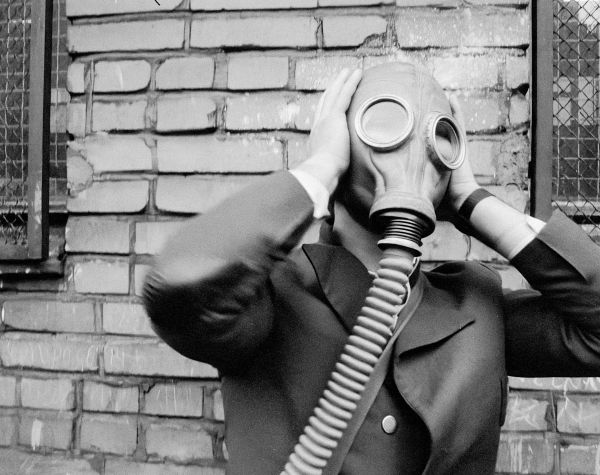
A Year In The Life Of A Country
On the 13th of December 1981, telephone connections were cut off throughout Poland. Tanks appeared in the streets of the cities. A night curfew came into force. In response to the growing influence of the Solidarity trade union movement, General Jaruzelski's government declared a state of emergency. Tomasz Wolski's edited documentary uses lesser-known archival footage to put this tense chapter of Polish history into a broader context. But it is not only the speeches of politicians and dramatic clashes between citizens and the repressive apparatus that are included in this collage, edited with a flair for the absurd – the myth of a nation that suffered under totalitarian rule is shattered by images of everyday life. Many Poles are convinced, in line with government propaganda, that the opposition could have started a civil war. Others are more concerned about empty shelves than about the lack of freedom. The ubiquitous police and soldiers become as much a part of socialist reality as the fact that a shoe shop sells chickens. Ironically, the foreign correspondent seems most concerned about the whole situation. This portrait of a divided country, whose tragicomic quality also lies in its timelessness, concludes Wolski's historical trilogy (see An Ordinary Country (2020) and 1970 (2021)).“This time, I wanted to treat archive material like free jazz. The soundtrack will reflect that as well.”Quote source: Variety
director: Tomasz Wolski
original title: Rok z życia kraju
country: Poland
year: 2024
running time: 84 min.
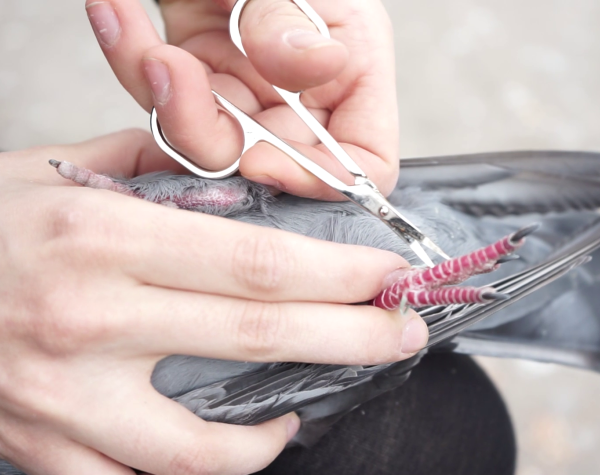
Avian Omen
The documentary, which was part of the exhibition of the same name, captures moments of birds and people meeting together in urban space. The most glaring sign of the incongruity in such relationships is the great number of injuries with which these winged inhabitants of metropolises end up at rescue stations. Wounds and irreversible damage are inflicted on them through intentional and unintentional human activity, but also by human creations that serve the everyday functioning of society. At the other end of the spectrum, there are individuals who are not only interested in the life of birds, but also care about their welfare and, in a figurative sense, communicate with our avian companions.“Birds are made up of stories. No bird ever dies, even if it does. All birds that have ever lived have a common memory. Birds taught people how to build their cities out of rocky mountains.”Source: Galerie Jeleni
director: Denisa Langrová
original title: Avian Omen
country: Czech Republic
year: 2024
running time: 36 min.
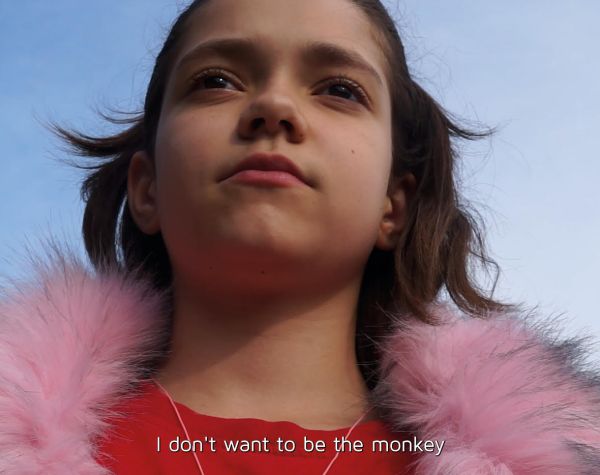
Becoming Outline
It started with an autobiographical art project. Miriam Bajtala used the floor plans of the 18 apartments she had lived in until now. They served as canvases on which she used words and colors to transfer her memories of the given space as well as the disadvantageous socio-economic factors that shaped her as a woman and a foreigner. In the confrontation she had begun with her own family history, the author is now continuing the film, which is fiction, documentary and performance. Different spaces and dimensions of existence – national, class, gender – are constantly layered on top of each other and rearranged in it. The result of the act of visualization and updating becomes a spatial curriculum vitae. “My experiment of creating a conceptual coming-of-age film.” — Miriam BajtalaSource: sixpackfilm
director: Miriam Bajtala
original title: Becoming Outline
country: Austria
year: 2024
running time: 70 min.
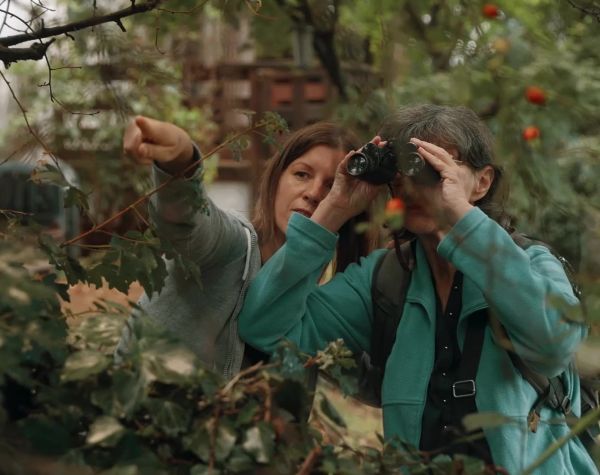
Birdhill
Vtáčnik is a small hill on the outskirts of Bratislava, which a few decades ago was decorated with vineyards and forests. For the director, like the other locals living there, it once represented a picturesque oasis of peace where birds took refuge. Today, however, it is being transformed beyond recognition by the cranes and excavators of property developers. Told from a detailed human and bird's eye perspective, this personal documentary composes an impartial mosaic of diverse, often conflicting accounts and ideas of what life in such a place should be like. Questions about economic concerns and the pursuit of a quality life in harmony with nature collide with the author's memories of her childhood. “My intention was not to divide people into good and bad, but to point out the system that leads people to elevate their individual interests above the common good and to enrich themselves at the expense of others.” — Eva Križková Source: Pravda Magazine
director: Eva Križková
original title: Vtáčnik
country: Slovakia, Czech Republic
year: 2024
running time: 70 min.
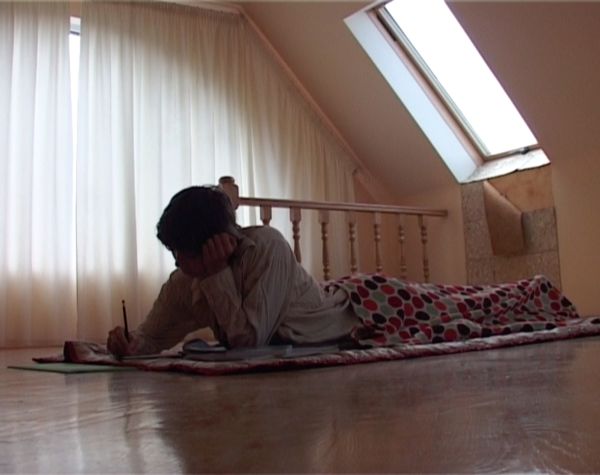
Cognition Trilogy: Separation
During the first wave of Covid-19, four young Ukrainian filmmakers retreat to the countryside to work on their artistic projects. Where they were looking for peace and escape from pandemic restrictions, they end up finding much more. The film diary, in which the director's voice speaks to the overman within, becomes not only a record of creative development and search, but also a description of the painful journey to the knowledge of one's inner self. The separation does not only refer to the spatial and relational distance between individuals, but can also be understood in the coordinates of the separation of individual layers of the personality in the process of self-observation.“Separation is a natural process of destruction, which exposes a person, leaving them alone with themselves.”Source: IMDb
director: Sophia Gera
original title: Трилогія Пошуку: Сепарація
country: Ukraine
year: 2024
running time: 82 min.
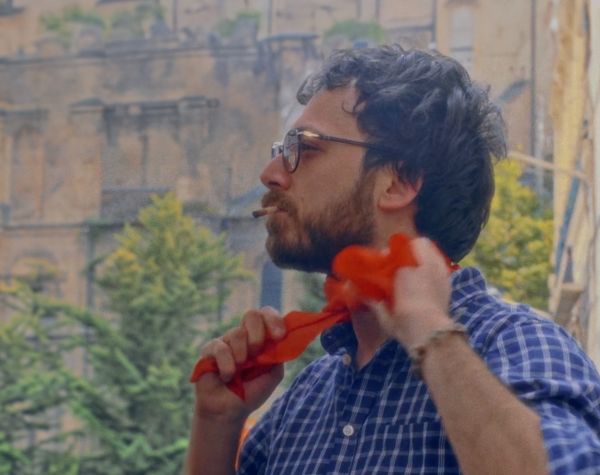
Comrades
Simone, Francesca and Olivia are three young people from Bologna who are members of the Communist Renewal Party. Full of life, they take part in demonstrations and party meetings and believe that they can change the current world, dominated by ruthless capitalism and pressure for performance, for the better. At least until the moment when it turns out that it is almost impossible to change the minds of the older party members and the unsuccessful attempts to win new supporters intersect with the difficulties in their personal lives. Comrades is an empathetic time-lapse portrait that shows how the current young generation is losing its illusions due to social pressure and turbulent internal changes, and how difficult it is to keep faith in what we believe makes sense.“By telling the stories of Olivia, Francesca and Simone, I try to show topics shared by many 20-30-year-olds: overstimulation, confusion, and awareness of social inequalities, accompanied by a difficulty in translating their good intentions into actions that bring about real change.” — Joanna JanikowskaQuote source: CineLink Industry Days
director: Joanna Janikowska
original title: Towarzysze
country: Poland, Italy
year: 2024
running time: 61 min.
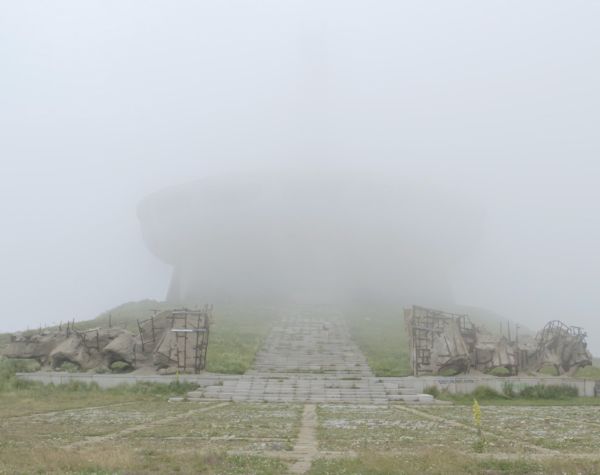
Cosmonauts Like Chewing Gum
Growing up in West Germany in the 1980s, Aline imagined a gregarious life on the other side of the Berlin Wall. Meanwhile, in communist Bulgaria, Veselina believed that everyone was happy under capitalism. In their collaborative hybrid documentary, they use their childhood fantasies to sketch a new utopia.
director: Aline Helmcke, Veselina Dashinova
original title: Cosmonauts Like Chewing Gum
country: Bulgaria, Germany
year: 2024
running time: 20 min.
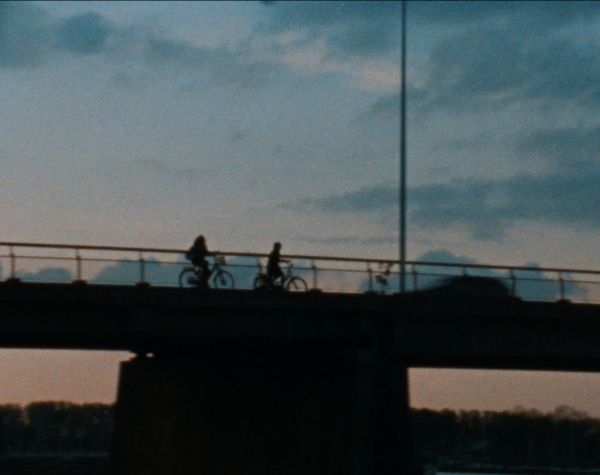
Dear Shadow, My Old Friend
This film, at the intersection of visual art and documentary, reveals the shadowy past of the Dutch colonial empire through artfully edited archival footage. A dreamlike essay on the confectionery industry driven by the exploitation of Indonesian farmers, it also depicts the traditional rituals of the author's people and asks questions about modernity, the passage of time, the formation of memory and the nature of humanity.“Through the intersection of visual art and cinema, I plunge into Indonesia's haunting colonial past, exploring its hidden depths and intricate layers.” — Timoteus Anggawan Kusno
director: Timoteus Anggawan Kusno
original title: Sihir Kamar Gelap
country: Netherlands, Indonesia
year: 2023
running time: 13 min.
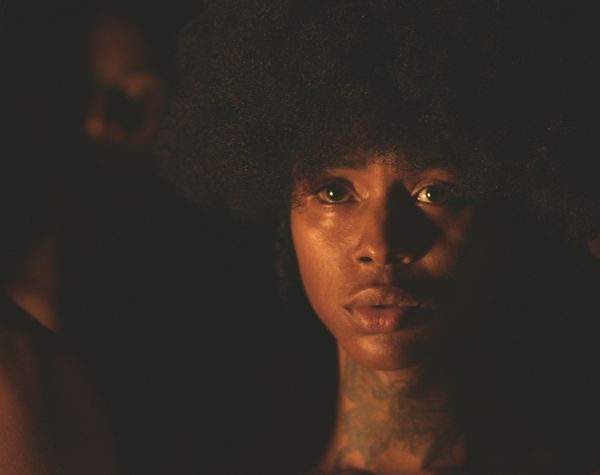
Fragmented
Ritual dances, incantations and fetishes in an associative sequence of mystical scenes reveal the roots of the Afro-Cuban minority in Bauta, Cuba, whose colonial past is guarded by a statue of a slave in chains. Tobacco smoke and magical ceremonies awaken the spirits of ancestors and invite them to fill the forgotten places of cultural memory of a young generation searching for their identity in a post-colonial era of political instability and religious syncretism.“O my flesh, make me a man who always asks.” - Frantz Fanon
director: Feguenson Hermogène
original title: En mil pedazos
country: Cuba
year: 2023
running time: 12 min.
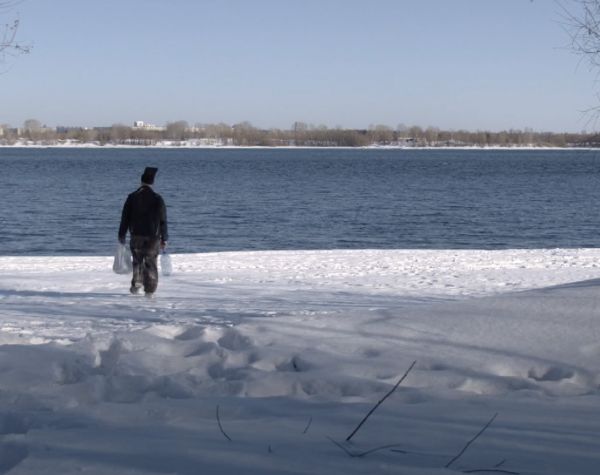
Happiness to All
Vitaly, a nuclear physicist and record holder in extreme cold-exposure training, makes his living as a bricklayer and lives below the poverty line. While his parents, prominent scientists, reminisce about the glory of the regime they willingly built, the avowed patriot from Novosibirsk is gradually changing his mind about Putin's Russia. He rejects its capitalist nature and continues, as a radicalised blogger, to advocate the establishment of a juster regime. This intergenerational clash is typical of the countries of the former Soviet Bloc. While the older generation remembers the certainties and advantages of the past regime, the younger one is hopelessly mired in a crisis of authority, rejecting past and present political representation and resorting to extreme views. Like everything else in his life, Vitaly is experiencing his political awakening in an extreme way as the son of elites relegated to the social periphery after the collapse of the empire. This time-lapse character study, filmed between 2016 and 2024, depicts how long-term frustration and disillusionment lead entire generations and social classes to gravitate towards radical solutions and vote for authoritarian leaders like Putin, Trump or Le Pen. “I'm not afraid of a coup; I'm looking forward to it. Any change will be for the better, because it can't get any worse.”
director: Filip Remunda
original title: Štěstí a dobro všem
country: Czech Republic, Netherlands, France
year: 2024
running time: 96 min.
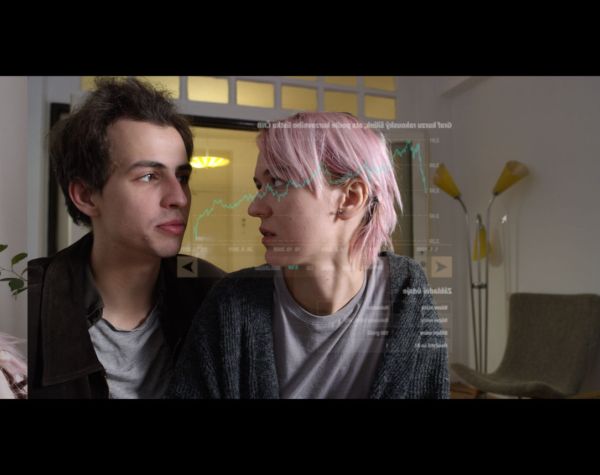
Kinetopsia
Kinetopsia, a disorder in which one believes that static objects are in motion, serves as a metaphor for the social situation we find ourselves in: the Velvet Revolution took place thirty-five years ago, and while the opaque present continues to bring new problems, public discussion often still revolves around the hunt for the "spectre of communism". From the perspective of a young couple, we discover the fascinating project of Sylvia's abandoned Discoland and become aware of the critical moments of the political transformation that has determined the economic and cultural conditions in which we live today. "We are fighting here. Against the fucking communists, for freedom."
director: Tomáš Svoboda
original title: Kinetopsie
country: Czech Republic
year: 2024
running time: 30 min.

Main Home
“If a house is like our body, where is its heart located?” asks the narrator of the film, who is also one of the residents of the house in question. As we observe her and her partner going about their daily activities, the violent history of the place is revealed in hints as it comes back to life years later.
director: Cristian Hidalgo
original title: La Casa Grande
country: Colombia
year: 2024
running time: 28 min.
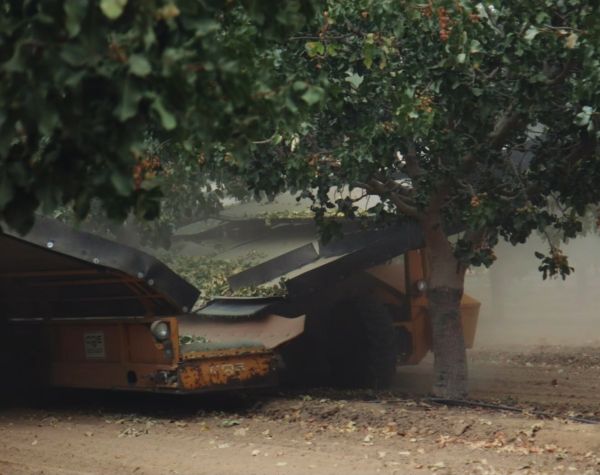
Pistachio Wars
The United States is the largest producer of pistachios in the world. Growing them in California requires huge volumes of water, which many people can no longer get in the quantities they need. In the meantime, the vast inland plains, once plundered by oil production in the state, have become giant industrial farms. Investigative journalist Yasha Levine's reporting journey uncovers the context of the reckless trafficking of one of the most basic raw materials – water. Changes in legislation and massive encroachment on natural watercourses are transforming not only the landscape, but above all the human value of this life-giving liquid.“The thing I find most shocking is comparing the images of the past—a lush wetland with abundant bird life—to now, a landscape dominated by industrial farming.” Quote source: Film Fest Report
director: Rowan Wernham, Yasha Levine
original title: Pistachio Wars
country: New Zealand, United States
year: 2024
running time: 75 min.
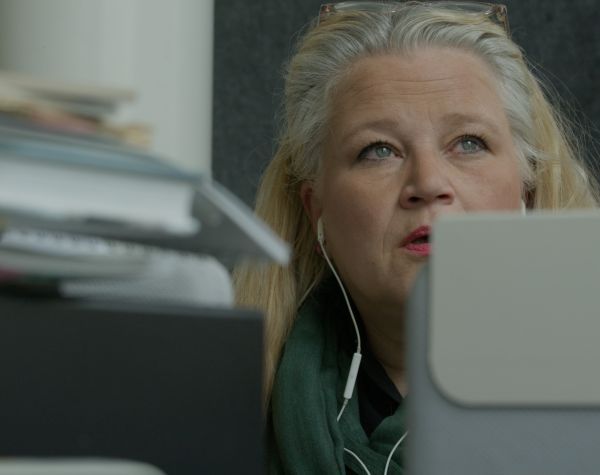
Pit Stop Reporter
Ivana Svobodová, a journalist for the weekly Respekt magazine specializing in the Czech disinformation scene, does not create her reports from her desk, but in the field. She engages in clashes of opinion with people who believe in the positions propagated by bloggers like Vidlák. The plurality of opinion has been transformed by their influence into a battlefield divided into good and bad media. This confrontational portrait of the role of a liberal periodical in the era of rampant social media conspiracies with a sociological overlay discusses the impossibility of dialogue. It asks questions about the difference between opinion and fact, as well as what authority is respected by those who oppose authority and who is the watchdog of democracy.“I don't know what kind of world this is; I don't mean that politically, I mean it humanly. How often does a person get so angry that they want to insult a stranger?”
director: Zora Čápová
original title: Reportáž psaná na benzínce
country: Czech Republic
year: 2024
running time: 54 min.
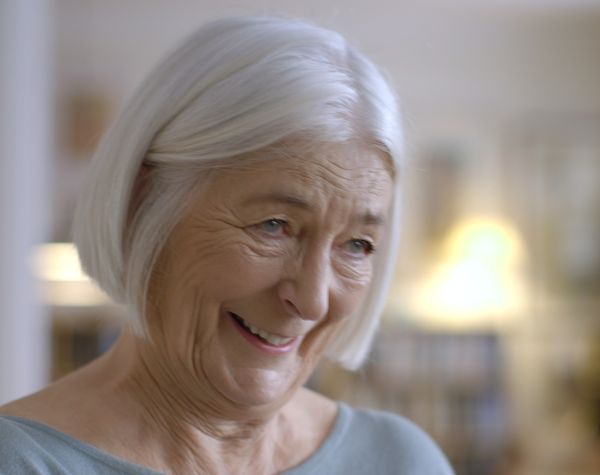
The Day Iceland Stood Still
The Red Stockings are pioneers of the feminist movement in Iceland. In the 1970s, they crucified a mannequin of a tired housewife on a Christmas tree, brought a live cow to a beauty queen pageant or initiated a mass strike by women across the country. Iceland thus discovered in October 1975 what happens when women leave their homes and jobs and take a day off. The humorous and serious accounts of the strikers, interspersed with Joel Orloff's animations and the closing track by Bjōrk, provide a cathartic testimony to civic awakening and the power of a collective voice to change society.“If you don’t tell this story, it never happened. This is the last chance for the women to put it in their own words, which are so powerful – as opposed to someone sometime in the future writing something based on archival material.” Source quote: Original CIN
director: Pamela Hogan
original title: The Day Iceland Stood Still
country: Iceland, United States
year: 2024
running time: 70 min.
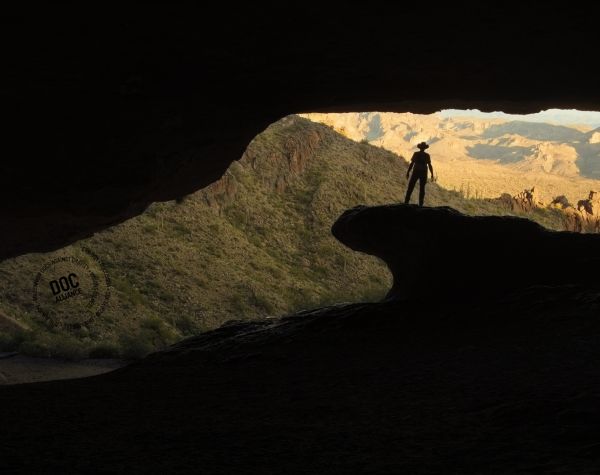
The Gate
In the middle of the Utah desert, near the Skull Valley Indian Reservation, is a heavily guarded military base where the U.S. military has been developing and testing chemical, biological and nuclear weapons since World War II. It was here that the pilots who dropped the atomic bomb on Hiroshima were trained. Anyone working at the military facility is bound by confidentiality. Nevertheless, the filmmakers piece together a complex picture of the high price the United States pays for wars that take place thousands of miles away, yet are painfully etched into the American landscape and mentality.“There is no one reality, especially not in documentary film. Our film is more a reflection on the costs of war and human existence.” — Michael David BeamishQuote source: der Freitag
director: Jasmin Herold, Michael David Beamish
original title: The Gate
country: Germany
year: 2023
running time: 88 min.
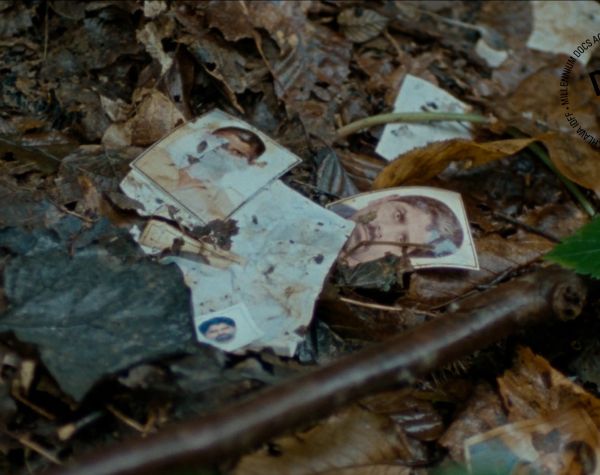
The Landscape and the Fury
The Bosnian town of Velika Kladuša is located near the Croatian border. Its inhabitants often come into contact with refugees from the Middle East and other even more distant places. Day and night, the camera observes the local forests and streets, capturing unbiasedly the clearing of civil war-era explosives, school lessons and collective efforts to face the consequences of the current conflicts. The layered soundtrack and the deliberate rhythm of the narrative, subordinate to the changing seasons, contribute to a slowly absorbing atmosphere of a place where past and present traumas collide alongside different cultures.“With my stubborn approach as a filmmaker, I wanted to grapple with this spot on earth, this spot of World Soul. Perhaps I‘d call it an attempt to ‘capture a floating truth’.” — Nicole Vögele Quote source: European Film Academy
director: Nicole Vögele
original title: Landschaft und Wahn
country: Switzerland
year: 2024
running time: 138 min.
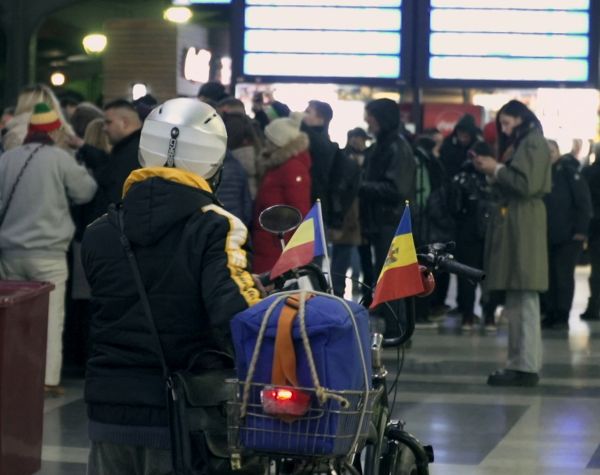
The Union Train
The populist Alliance for the Union of Romanians (AUR) organised a train for its supporters on the national holiday of Unification Day to visit celebrations culminating in the nationalist speeches of AUR’s President George Simion. The observational footage of passengers and participants in the grand convention brings to light the dangerous rise of the far right in Romania.“We need leaders who love their country, their people and those people’s values.”
director: Ștefan Marcu
original title: Trenul Unirii
country: Romania
year: 2024
running time: 24 min.
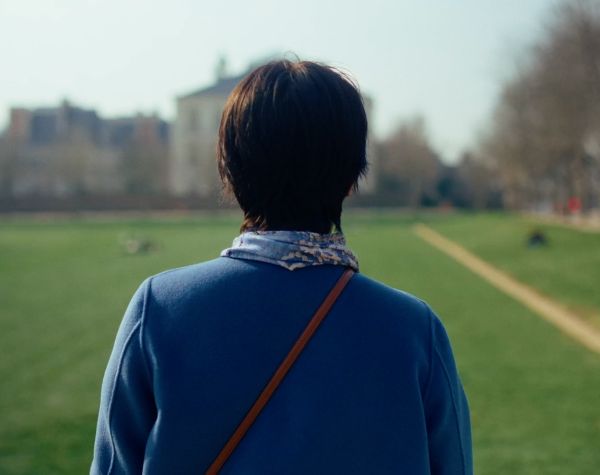
The Woodland Threshold
Dao comes from Laos, but she has been living in France for many years. Set mostly in the Laotian jungle, the film is a dream and an idea of her return to her own essence. In the meditative rhythm of a slow human stride, we dive into a woman's memories of home, rituals and the family she had to leave behind.
director: Giulia Grossmann
original title: Le seuil de la forêt
country: France, Laos
year: 2024
running time: 18 min.
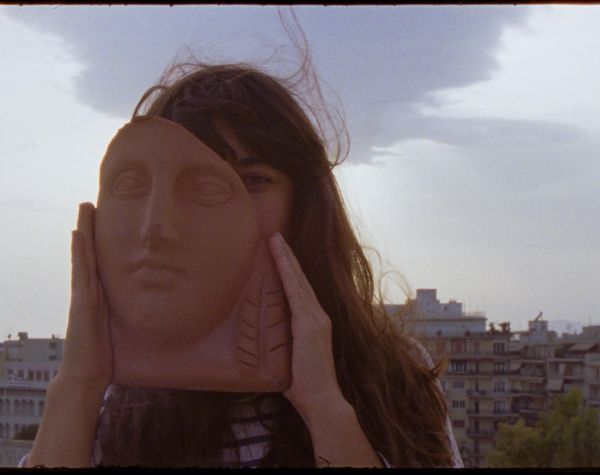
What We Ask of a Statue is That It Doesn’t Move
This poetic film from the streets of Athens mixes colourful imagery with a strong political message. The clash of two worlds – the human world full of dynamism and the world of ancient statues representing tradition and staticism – is depicted with a playful exaggeration in which statues come to life and people turn into statues. We follow a group of young artists and activists organising demonstrations to destroy historical monuments, especially the Parthenon temple, which functions as a metaphor for the old order preventing radical social change. This reveals the relationship between the current political situation in Greece and the doctrine of cultural heritage.“If statues could talk, what would they say?”
director: Daphné Hérétakis
original title: Ce Qu'on Demande à une Statue, C'est Qu'elle Ne Bouge Pas
country: France, Greece
year: 2024
running time: 31 min.










